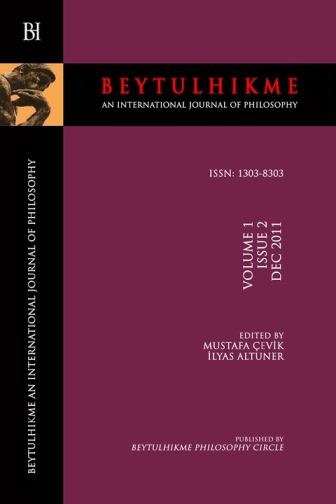Author :
Abstract
This essay intends to show that science, especially the natural sciences, operate on presuppositions. In a nutshell view of aspects of the history of science the presuppositions, as part of the relevant historical context, operate within the scientific enterprise. Science used to be views as positivist and final; yet, the logic of methodology, from E.A. Burtt to T.S. Kuhn and Karl Popper show that presuppositions are part of the scientific research. Particularly the pioneering work of the archeologist and philosopher R.G. Collingwood and the seminal thinker S.N. Nasr, who opened the doors for the inquiry of the role of science within Islamic Civilization, are highlighted. We show that the tension between the humanities (human sciences) and the natural sciences still exist and need to be explored on a global level, especially as to their cultural presuppositions involved. <
Keywords
Abstract
This essay intends to show that science, especially the natural sciences, operate on presuppositions. In a nutshell view of aspects of the history of science the presuppositions, as part of the relevant historical context, operate within the scientific enterprise. Science used to be views as positivist and final; yet, the logic of methodology, from E.A. Burtt to T.S. Kuhn and Karl Popper show that presuppositions are part of the scientific research. Particularly the pioneering work of the archeologist and philosopher R.G. Collingwood and the seminal thinker S.N. Nasr, who opened the doors for the inquiry of the role of science within Islamic Civilization, are highlighted. We show that the tension between the humanities (human sciences) and the natural sciences still exist and need to be explored on a global level, especially as to their cultural presuppositions involved. <
Keywords
- Buchdahl, Gerd, Metaphyscis and Philosophy of Science, London: Routledge, 1969.
- Burtt, E.A., The Metaphysical Foundation of Modern Science, New York: Dover, 2003.
- Bodde, Derk, Chinese Thought, Society, and Science, Honolulu: University of Hawaii Press, 1991.
- Blumenberg, Hans, The Legitimacy of the Modern Age, MIT Press, 1993.
- Blumenberg, Hans, Die Kopernikanische Wende, Frankfurt a.M.: Suhrkamp, 1965.
- Blumenberg, Hans, Arbeit am Mythos, Frankfurt a.M.: Suhrkamp, 1979.
- Cohen, I.B., The Newtonian Revolution, Cambridge: Cambridge University Press, 1980.
- Capek, Milic, The Philosophic Foundation of Modern Physics, Princeton: Van Nostrum, 1965.
- Denker, A. (ed.), M. Heidegger / H. Rickert: Briefe 1912 bis 1933, Frankfurt a.M.: Klostermann, 2002.
- Dupre, Louis, Passage to Modernity: An Essay in the Hermeneutics of Nature and Culture, New Haven: Yale University Press, 1993.
- Geier, Manfred, Karl Popper, Reinbek bei Hamburg: Rowohlt, 2003.
- Geertz, Clifford, The Interpretation of Cultures, New York: Basic Books, 1973.
- Hahn, Lewis E., et al., The Philosophy of Seyyed Hossein Nasr, Chicago: Open Court, 2001.
- Huff, Toby E., The Rise of Early Modern Science: Islam, China, and the West, Cambridge: Cambridge University Press, 2003.
- Jacob, Margaret C., Scientific Culture and the Making of the Industrial West, Oxford: Oxford University Press, 1997.
- Kuhn, Thomas S., The Structure of Scientific Revolutions, Chicago: University of Chicago Press, 1970.
- Koyama, Chumara (ed.), Nature in Medieval Thought: Some Approaches East and West, Leiden: E.J. Brill, 2000.
- Losee, John, A Historical Introduction to the Philosophy of Science, Oxford: Oxford University Press, 1993.
- Nasr, S.H., Science and Civilization in Islam, Cambridge: Harvard University Press, 1968.
- Nasr, S.H., An Introduction to Islamic Cosmological Doctrines, London: Thames and Hudson, 1978.
- Nasr, S.H., Islamic Art and Spirituality, Albany: SUNY Press, 1987.
- Weber, Max, General Economic History, New York: Collier Books, 1966.
- Weber, Max, Gesammelte Aufsatze zur Religionssoziologie Bd. I, Tűbingen: Mohr (Siebeck) UTB, 1986.
- White, Morton (ed.), The Age of Analysis, Freeport, New York: Ayer Co. Publishers, 2000
- Wolf-Gazo, Ernest (ed.), Whitehead: Einfűhrung in seine Kosmologie, Freiburg i.Br.: Alber Verlag, 1980.





